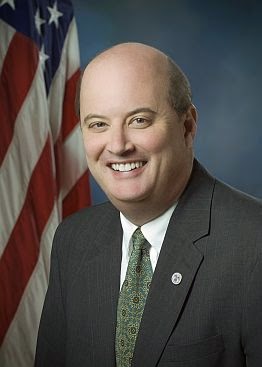Before his talk on October 27 titled "The Coming Battles Over Social Security," Courtney Wong '15 sat down with Michael Astrue for an interview.
The former Commissioner of Social Security, Michael Astrue, has split his career between public service and the biotechnology industry. As Commissioner of Social Security (2007-2013) he reported directly to Presidents Bush and Obama. He overhauled the agency’s antiquated IT systems and electronic services, reduced backlogs, created fast tracks for patients with severe rare disorders, and significantly improved the economic information provided to the public, particularly to women. A graduate of Yale and Harvard Law School, he has received two honorary degrees and numerous awards, including the Public Health Award from the National Organization of Rare Disorders and Humanitarian of the Year from the Alzheimer’s Association.
 |
| Former Social Security Commissioner Michael Astrue |
Courtney Wong (CW): You’ve split your career between public policy and the biotech industry. How did social security come into the fold? Did you always want to become involved with social security policy?
Michael Astrue (MA): Actually, yes. After graduation, my wife and I decided to work on Capitol Hill. She had a better run than I did because my boss had immediately decided to retire, and so she suggested that I shouldn’t just look on Capitol Hill. I realized that I wanted to work on senior citizens' issues and went to work for the National Council for Senior Citizens. Eventually I worked in the White House and went back to HHS [Department of Health and Human Services] when Social Security was still part of HHS. Gradually, I started doing more mainstream healthcare and biotechnology, and wound up getting involved with most of the things at HHS. It turned out to be a pretty nice career plan, even though it wasn’t really a plan. It was an improvisation, doing whatever seemed worthwhile next.
CW: Were you worried at the time, upon graduation from college, that you didn’t have a plan?
MA: Of course. The job situation was pretty unstable in the beginning of my career, with my bosses losing their jobs and grant money and such. One of the reasons I went to law school was to become a little more stable, but I didn’t stick to those plans for very long.
CW: How did working in a private law firm compare to public service?
MA: I didn’t particularly like working in private law firms. As a young lawyer, there is definitely valuable experience to be gained from it, but I really get a kick out of public service. I’m mission oriented, so I feel a lot happier when I feel like I have a mission that I believe in, which is why I think I gravitate towards biotech. When you get up in the morning to work hard, you want to feel like it matters. And when you’re trying to cure diseases, it gets you out of the bed in the morning.
CW: Do you ever get frustrated with a problem that has taken a long time to solve, like Social Security?
MA: Of course, but in government you need to take a long-term view. If you’re going to be a political appointee and try to influence an agency, keep in mind that anything meaningful you want to do will take at least three years. If you do actually make a difference or if something does happen because of your thought and initiative, it’s a really cool thing. We all want to leave the world behind a little bit better.
CW: What has been the most effective improvement on fixing Social Security so far?
MA: Because Congress has been deadlocked, there hasn’t been significant legislation passed since 1999. Most of the changes have been more operational and regulatory. One of the things on my watch that has been important was a fast track with new IT systems for people with very serious, rare diseases. We can approve people with these diseases within 24 hours, compared to days or months before this new system. Also, the agency only had rudimentary or incomplete electronic services beforehand–we were able to greatly improve and expand that.
